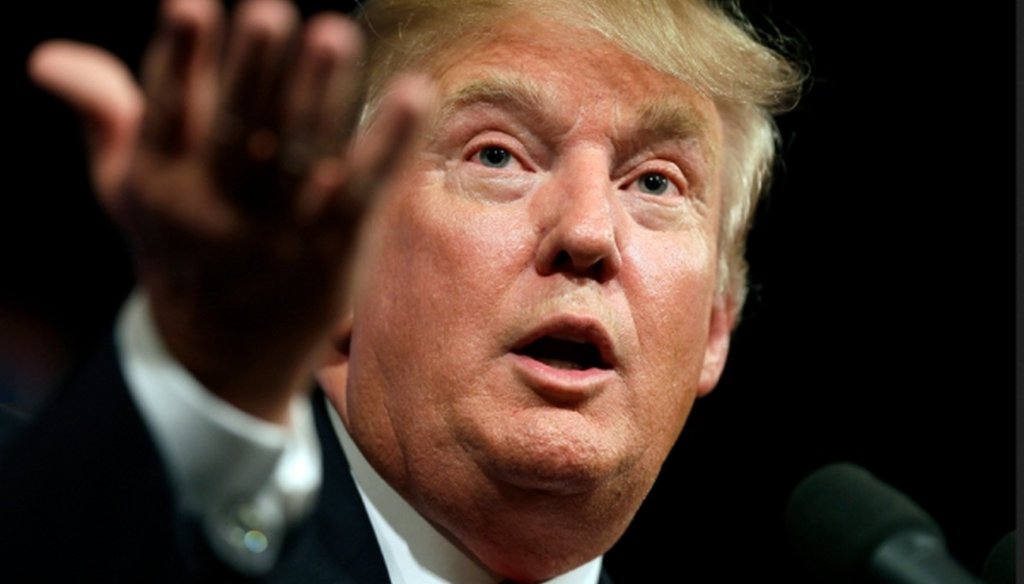Get PolitiFact in your inbox.

Republican presidential candidate Donald Trump speaks to supporters during a rally, in Des Moines, Iowa, on June 16, 2015.
Donald Trump, who in 1999 said he "was strongly pro-choice," says he's now against abortions and will nominate Supreme Court justices who share his stance.
During a Sunday interview with CNN's Jake Tapper, Trump suggested his shift in position mirrors the feelings of the American public.
"In terms of polling, the pro-choice (support) is going down a little bit," Trump said.
Actually, the polls show the number is holding firm or even going up. Trump’s claim rates False.
The most recent polling we could find comes out of Gallup. In May of this year, the polling group found 50 percent of Americans identify as pro-choice, compared to 44 percent of Americans who identify as pro-life. The gap is outside the margin of error, the first time the pro-choice position has a statistically significant edge since 2008.
If anything, the pro-choice position is gaining ground, not losing it in recent years. In 2012, 50 percent of people identified as pro-life, Gallup found, compared to 41 percent who identified as pro-choice.
According to Gallup, some shifts in public opinion on abortion have coincided with political events, such as related legislation or Supreme Court decisions.
Other research has found that public opinion on abortion has remained relatively stable.
According to Pew, 51 percent of adults say abortion should be legal in all or most cases, while with 43 percent say it should be illegal all or most of the time. Those percentages have been near the same level for more than 20 years.
The divide has stayed "remarkably stable" as far back as 50 years, according to researchers out of the American Enterprise Institute, a conservative think tank in Washington, D.C., who assembled data from several polls and published an article in The Atlantic about a year ago.
Our Sources
See individual fact-check.
















































